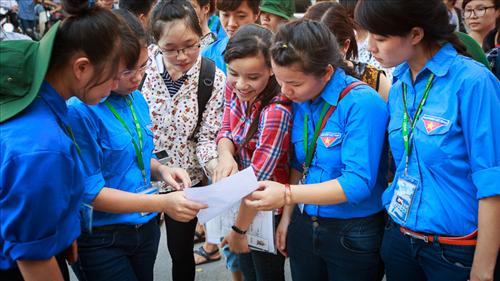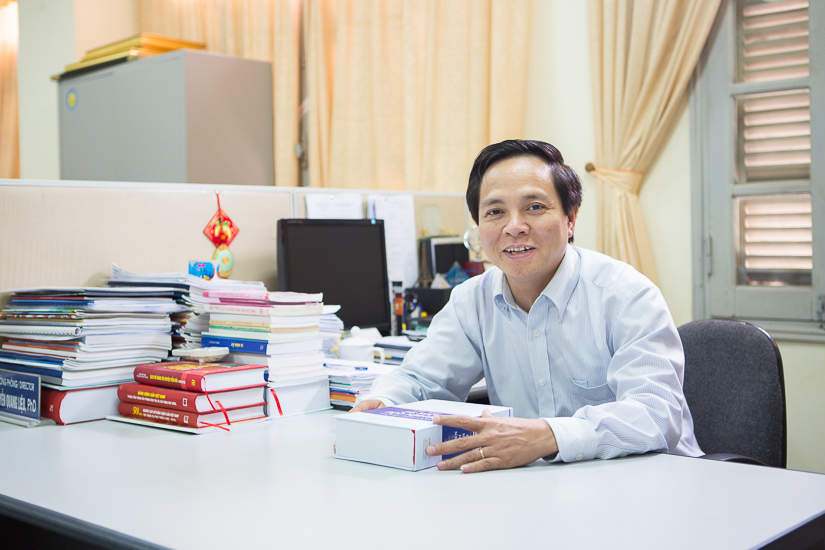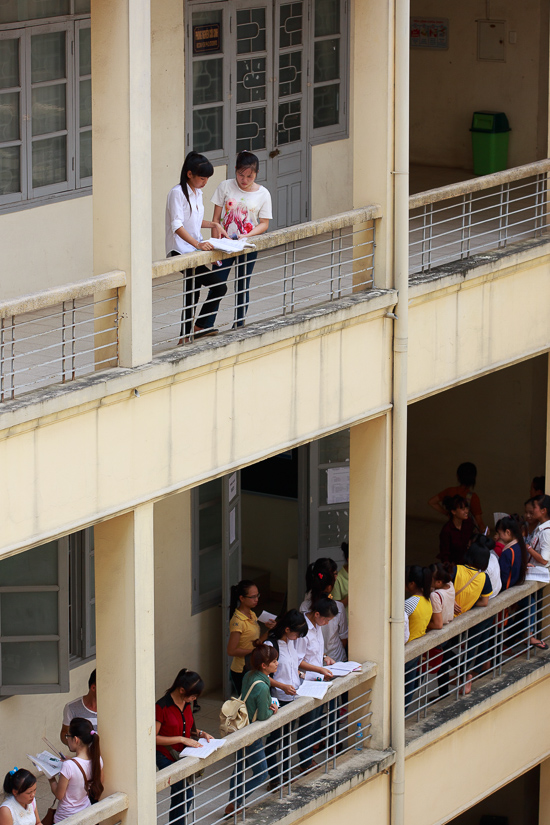

Dr. Nguyen Quang Lieu. (Photo: Thanh Long/USSH)
- Dr. [Name], could you share your thoughts on this year's History exam?
This year's university entrance exam in History closely followed the high school curriculum, covering both Vietnamese and world history. The questions covered a wide range of important periods in Vietnamese history, from the August Revolution of 1930-1945 to the victory of the resistance against the French in 1954, the victory of the resistance against the US in 1975, and even the current stage of national development. This broad scope of knowledge is excellent as it avoids the phenomenon of students focusing solely on specific topics.
This year's university entrance exam in History was particularly good, innovative, and creative. It didn't focus heavily on rote memorization but rather on analysis and critical thinking based on understanding the material.
For example: Question 1 asks about which uprisings and resistance movements left a strong mark on Vietnam in the 20th century? Students could list the great victories of the nation such as the August Revolution of 1945, the victory of the resistance war against France in 1954, the resistance war against the US in 1975... But the second part of Question 1 asks about the role of the masses as one of the important causes in those great victories. This is a good question; students must have broad knowledge and a thorough understanding of the lesson to present this idea.
Question 4 asks about the changes reflecting the growth of ASEAN countries, but it doesn't follow the old-fashioned question: the formation, origin, role, and functions of ASEAN...; instead, it lists typical events to show the development and transformation of Southeast Asian countries since World War II and requires candidates to make general observations and conclusions for each specific period.
In particular, the question: "What should ASEAN do to ensure peace, security, and stability in the region?" is a very good question because of its topical relevance. The question relates to the complex issue of maintaining sovereignty in the South China Sea, as well as the pressing issue of regional security today. This question is difficult to answer correctly and effectively based solely on textbook knowledge; it forces students to gather additional information beyond textbooks, grasping current events to incorporate into their analysis and commentary. This type of question helps learners not only grasp textbook knowledge but also apply what they have learned to practical issues in society and the current times.

Candidates review for the History exam on the afternoon of July 9, 2014. (Photo: Thanh Long/USSH)
- This year's History exam is different from previous years in that there is only one common exam for all candidates. What are your thoughts on this change, Doctor?
The History exam differs from previous years in that it consists of four questions for all candidates, with no optional questions and no distinction between candidates from specialized or non-specialized programs. Since the introduction of the unified national university entrance exam, this year's History exam has shown the most significant difference. This approach has both advantages and disadvantages. On the one hand, a unified exam ensures equal treatment for all candidates, with clear questions to avoid unfortunate mistakes. In previous years, some candidates made mistakes and answered both optional questions, resulting in low scores. On the other hand, this approach limits candidates' opportunities to choose the knowledge areas they study most thoroughly or are most interested in.
- Doctor, what are your thoughts on this year's exam's ability to assess candidates' abilities?
This year's exam questions are well-designed, clear, and not tricky. Importantly, they allow test-takers the opportunity to showcase their creativity and unique thinking. This type of exam is suitable for above-average students, as it gives them a chance to demonstrate their broad knowledge and understanding to earn high scores. The questions are well-balanced, harmonizing knowledge with critical thinking and comprehension skills. This format stimulates creativity, which is crucial in today's learning environment.
- Should this method of setting exam questions be encouraged in future years?
This year's History exam also presents us with a challenge: the teaching of History at the high school level today needs to change.,Learning shouldn't just involve dry, theoretical knowledge, but should also integrate and connect it to practical issues..History lessons and issues are revisited, presented in a fresh and contemporary way. Doing so makes teaching and learning history in high school more lively, engaging, and relevant to current events, helping to guide and educate young people's awareness.
This approach to question design should be encouraged in the coming years to contribute to improving the current way of learning and teaching History, so that History can truly fulfill its role and value in educating fundamental knowledge, patriotism, humanistic values, and drawing and applying historical lessons to solve life's problems. In addition, it will also help improve teaching and learning in general to be more effective and substantial.
- Can you predict the score distribution for History this year?
With this exam, a score of 0 will be very rare. However, if candidates only study from textbooks, it will be difficult to get a high score. I think the majority of scores will fall between 5, 6, and 7. A score of 10 will be very difficult to achieve, and scores of 9 will be fewer than in previous years.
Thank you, Doctor, for your comments.
Author:Thanh Ha
Newer news
Older news